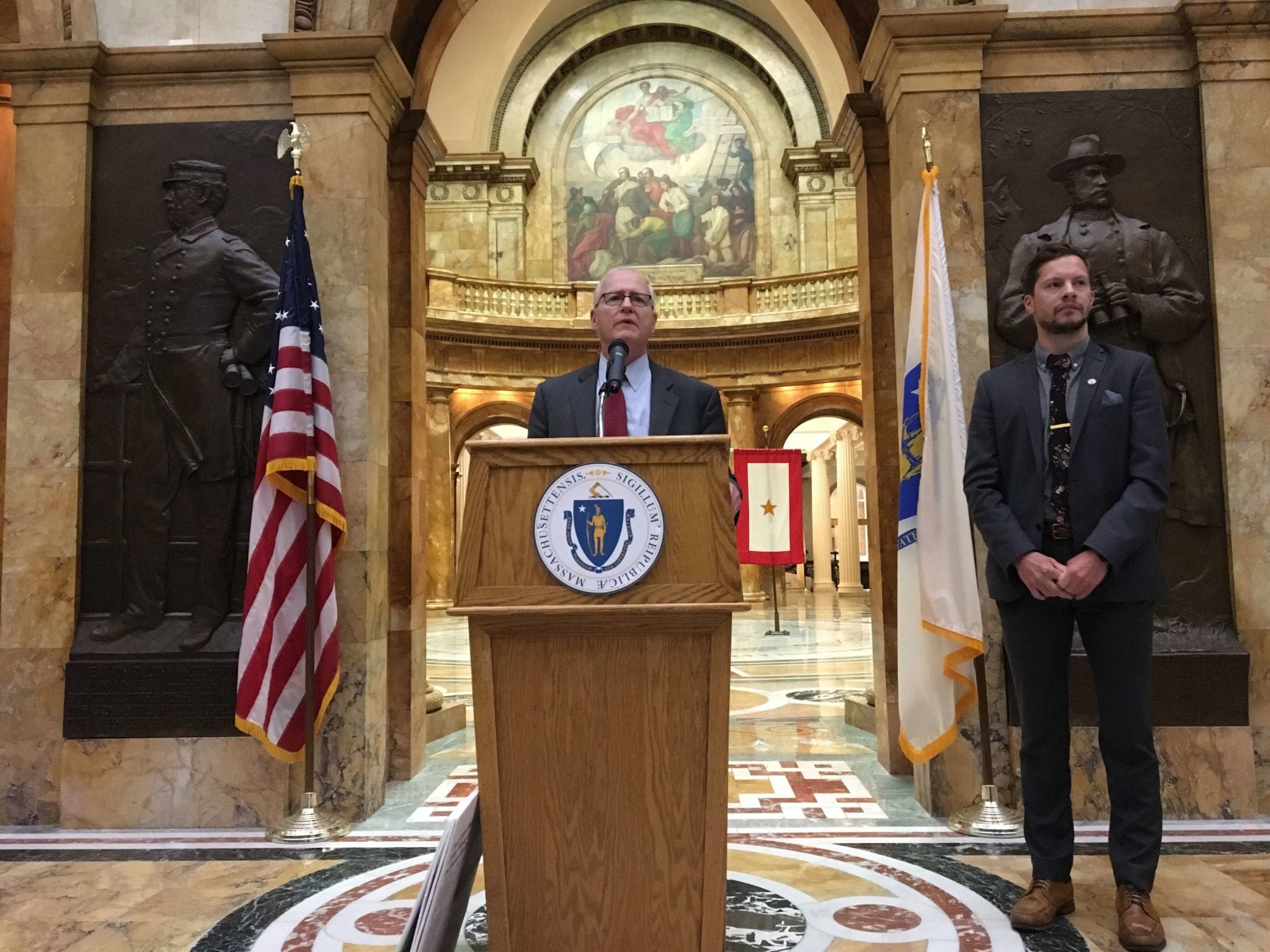The Massachusetts State Senate made history today by passing landmark carbon pricing legislation. This is a major step towards establishing a carbon price in Massachusetts and setting the state up for a clean energy future.
The bill (S.2545- An Act to Promote a Clean Energy Future) includes a key carbon pricing provision that allows Massachusetts to regain state leadership on climate policy by establishing a “market-based mechanism” to reduce carbon emissions. If passed, this would make Massachusetts the first state to establish a price on carbon in the United States.
The mechanism would specifically target emissions in the transportation sector, which accounts for over 40% of carbon pollution in Massachusetts. It would also reduce those caused by heating fuels, which account for another one-third of carbon pollution.
After two years of legislative back-and-forth, and significant modifications, the bill opens the door for an economy-wide price on carbon. This comes at a critical time as multiple states across the region consider options to reach deep carbon pollution reduction. If the bill becomes law by the end of the session it would require the Governor to implement a market-based mechanism no later than December 31, 2020. This will move our focus to the Governor’s office and state agencies as we can guarantee the best possible outcome as rules are promulgated and policies implemented.
Also a special thank you to Senator Mike Barrett (D-Lexington), the State Senate’s relentless carbon pricing champion over the last two sessions. Senator Barrett had this to say, “Climate change is relentless, and ‘putting a price on carbon’ is the single most effective thing a state government can do to fight it. But this isn’t about the Legislature forcing one design, and one design only, upon a governor. We’re firm on timing because the problem is urgent, but we don’t mandate the method.”
This fits directly in with the efforts currently being undertaken by the Governor who announced earlier this year his intention to address carbon emissions from the transportation sector. Transportation Secretary Pollack and EEA Secretary Beaton are leading this effort, with Beaton having stated, “our next target [is] for new policies that will lead to further [emission] reductions is the transportation sector and we’re looking forward to rolling up our sleeves and finding solutions.” Following this statement, both secretaries went on a statewide listening tour where putting a price on carbon through a market mechanism was one of the most popular and frequent recommendations.
We have long known that a price on carbon will boost the Massachusetts economy. An independent study commissioned by the Massachusetts DOER showed that a $40 per ton carbon price will create 12,000 jobs and increase gross state product by $600 million. These benefits stem from the opportunity for consumers to invest back into the local economy, as opposed to spending money on fossil fuel imports.
The bill also contains a number of other proposals to achieve a clean energy future in Massachusetts including expansion of the state’s renewable energy portfolio (RPS) by 3% per year and a complete removal of net metering caps. Complementing carbon pricing, these two policies would expand demand for renewable energy, creating new life for an industry that has shed 3,000 jobs last year and is expected to see steep drops in solar installations due to Trump solar tariffs.
The bill has widespread support from the business community, civic advocates, and environmental associations. Last fall over 100 business leaders urged Governor Baker to take action this legislative session, and just last week businesses representing multiple sectors met state lawmakers to advocate for carbon pricing in S.2545.
Today’s vote is a major step forward for carbon pricing this legislative session, but the fight is not over. The legislation’s next step is in the House where we hope to continue momentum for the legislation and for carbon pricing. The House is currently considering several pieces of legislation which would dovetail nicely with the Senate’s actions. These include H.3404 which establishes new energy efficiency rules for appliances and H.3742 which expands incentives for electric vehicle dealers.
Our leaders in the State House have some tough decisions to make between now and the end of the session on July 31st. We can anticipate that there will be long nights of negotiation between the two legislative branches and the corner office. I want to thank all of the Climate XChange supporters, CABA member businesses, and all other advocates who we share today’s success with. This giant step forward would not have been possible without you. We still have work to do but I’m confident in our ability to create meaningful action.
Please stay tuned to our website, policy newsletter, and cooler earth podcast for future updates.









